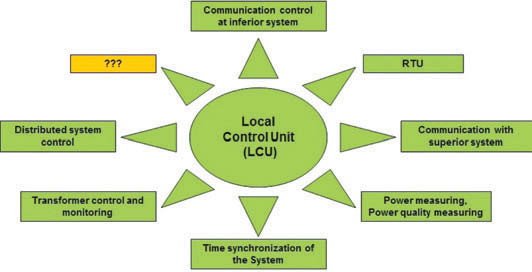Power Systems – Waiting for Darkness
Power systems in Central Europe are systematically facing critical situations. An enormous power market deformation (public subsidies of renewable sources, import of cheap coal from the USA due to shale gas usage) is leading to many negative impacts. Modern gas and coal power sources as well as (surprisingly) nuclear reactors are often beyond the line of economic profitability.
What are the economic consequences of market distortions?
This situation brings unexpected results. One of them is an ongoing utilization of already depreciated brown coal sources with no emissions decrease. The second one is power production in unpredicted sources. Let’s add senseless subsidies that drain money from needed projects and we have a description of Central European power engineering. Later can be added positive impacts of subsidies to the development and production of photovoltaic panels (also in small scale installations which contributes to the power independency of customers).
All the above-mentioned facts create enormous tension in keeping equal balance between power production and consumption. We are witnesses of irreversible changes that are permanently modifying the requirements of today’s power engineering. However, the external political intervention that put these changes in motion did not state the most important thing: how will it all be regulated?
What is the role of smart grids?
Without any doubt, smart grid system application is suggested. However, it also has a small fly in the ointment. With subsidized solutions that are introduced within these projects, the basic economics are often forgotten. Quietly and naively, it is hoped for installation of high speed transmission with 100% coverage that solves projected data transfer inefficiencies, including orders generation and communication protocols inefficiencies. Let’s try to look for possible procedures that could keep these effects to a defined scale.
In order to complete power energy system control, we can use a decentralized element as a basic step. Its main task is to create and maintain balance on the local level, or impose limitation on power
overflow to higher voltage levels. The power system is thus forming into small local islands with one or several distribution transformers.
Introducing LCU: Decentralized control with security
This element, the local control unit (LCU), should organize all the needs in the local distribution network based on the requirements of the larger system. This solution is based on working with a relatively small number of devices on both the production (distributed small sources) and consumption sides. It is possible to use technical tools that are already available, and are currently verified within pilot projects.
The LCU is defined in such way that significantly decreases the cost due to its integration in comparison with the situation where single units cover single functionalities.

Use of LCU for distributed system control
Distributed system control is the essential attribute of an LCU. Modern electronic meters (with breakers and intelligent frequency relays) together with the customers’ cooperation enable them to control and use their production and accumulation capacities. This relation to the customer is thus a basic tool for system control.
An integral part of the connection between the LCU and e-meters is also theft detection and localization, as well as failure prediction. Monitoring and identification of sources emitting deformed power to the network belong to the further very important functionality.
Time synchronization is used. The time stamp is primarily derived from a GPS signal, and subsequently is used for synchronization of all devices placed in the distributed system. Such time synchronized measurements enable operation state analysis.
Among other characteristics of the LCU, we can mention monitoring and control of substation operation, with the possibility of acting in transformer settings. Support of safe communication and secured inferior system control is a natural thing. The result is thus a relatively very powerful, financially unambitious unit containing all requested functionalities for effective inferior distributed system control.
A hardware independent solution?
From the hardware point of view, the LCU comprises satisfactory computing power and is ready for multi-processor solutions. This means that (if necessary) every process can run on its own independent processor with possible use of the precisely time defined operation system. The LCU must be independent of protocols and standards. It is enabled to use the protocols of the customer, their modification, and exchange. This is also valid for single software components of the LCU.
Conclusion
As one book said, the Rubicon is crossed, and there is no return. All of those with connection to power engineering know we are very quickly getting closer to the moment when we will not be successful in maintaining power production and consumption in balance, which will result in darkness. It is certain that it will happen, just that we do not know when and for how long. All the participants hope that, based on this darkness, the lights will be turned on in the heads of the elites and that they will take the appropriate steps. In the end, however, maybe the most reasonable thing will be to do nothing and leave it to those who really understand!
